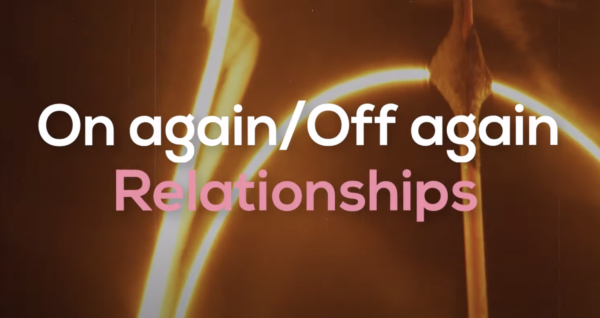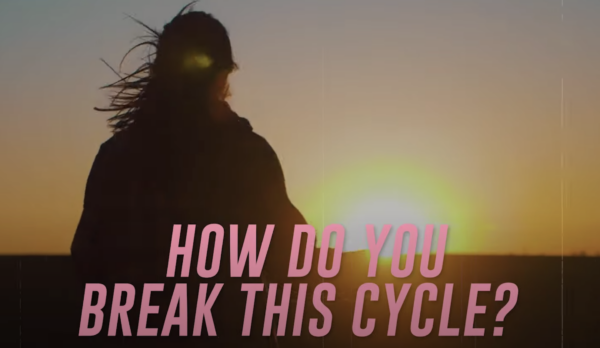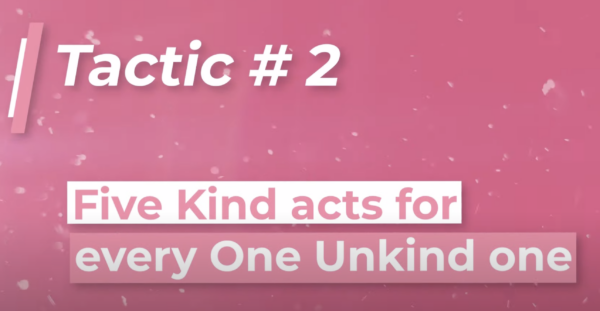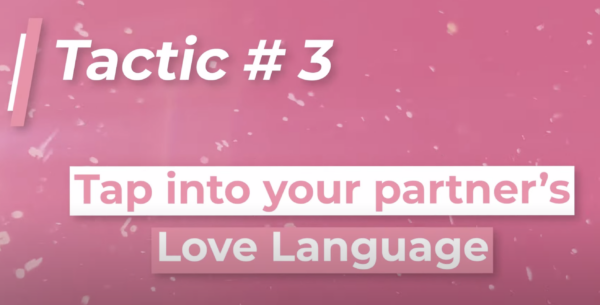Have you ever wondered if a relationship can work after several breakups?
Believe it or not this has been one of the most predominant questions people have been asking me since I started my business. So today, we’re going to answer how you can make a relationship work if you’ve broken up several times,
(Because spoiler alert: they can work, you just need to know how!)
Let’s begin!

What Are Your Chances of Getting Your Ex Boyfriend Back?
Take the quizLearning If Relationships Can Work After Several Breakups
The first step for understanding this specific topic is clarifying what we mean when we say breaking up several times – generally speaking, I view these relationships as on-again/ off-again relationships.
If you’ve been through several breakups, it’s implying that you’ve broken up with your ex or they have broken up with you, you’ve got back together again, and you’ve broken up once again.
These on-again/off-again relationships are fascinating because of this inherent paradox:
It’s really easy to get an ex back if you’re in an on-again/off-again relationship, but it’s extremely difficult to keep that relationship alive and prevent breaking up again.
On-again/off-again relationships are a self-fulfilling cycle that’s very hard to break for the following reasons…
Why Are On Again/Off Again Relationships So Hard To Break?
In all I think there are three core reasons for why on again/off again relationships tend to be so hard to break,
- Getting addicted to the chase
- Not fixing the same problems that caused the breakup
- Becoming “secure” doesn’t happen overnight.
Allow me to expand.
Reason #1: Exes get addicted to the feeling of the chase
Exes love the thrill of falling in love with a new version of you over and over again.
So when that initial honeymoon period eventually wears off – and it typically wears off very quickly- your partner gets bored. Then they break up with you to restart the cycle and enjoy the chase again.
Reason #2: The same problems are present, and only one person wants to fix them
Oftentimes people don’t really address the fundamental problems or compatibility issues within on-again/off-again relationships, so after the initial chase thrill wears off, the problems still persist.
This is even worse because usually only one party wants to work on the problems, and that’s usually the same party that initiates actions to get back together. It’s not really feasible to expect one partner to solve recurring relationship issues without any input from the other.
Reason #3: Becoming a secure attachment style isn’t an overnight fix
The final thing I would say about why exes often break up again after getting back together is a misconception on the secure attachment fix. So a lot of times, you’ll hear me say that secure attachment styles have gravity – they pull other attachment styles to mimic their behavior.
Usually, it’s best for everyone if both parties can move towards more secure attachment behavioral styles. However, suppose you’re an anxious attachment style, and your ex is an avoidant attachment style.
In that case, it’s not a super simple fix to turn those two attachment styles into a secure attachment style overnight. It’s especially difficult if only one person is putting in the effort towards secure attachment.

What Are Your Chances of Getting Your Ex Boyfriend Back?
Take the quizHow To Ensure Your Relationship Can Break the On Again/Off Again Cycle and Survive
I know it seems like the long-term odds are stacked against you if you’re in an on-again/off-again relationship, but there are definitely ways to make it work.
Here are a few of my best tips.
- Utilize Tactical Empathy
- Five Kind Acts For Ever One Unkind One
- Tap Into Your Partners Love Language
Once again allow me to expand.
Tip #1: Utilize Tactical Empathy
Tactical empathy is a negotiation tactic employed by world-renowned professional FBI hostage negotiator Chris Voss. He wrote about it in his book Never Split the Difference – I highly recommend that you check it out.
So what is tactical empathy?
Tactical empathy means empathizing with the other party to understand their worldview. This increased understanding of their point of view disarms their inhibitions and makes them more open to negotiating with you because they believe you get them.
This can work in all sorts of negotiations; take a car dealership for example.
A car salesman at a dealership wants to make money and get cars off his lot as soon as possible.
Once you understand that, you can utilize tactical empathy to get yourself a deal simply by repeating his position back to him.
You could say something like,
“Look, I know you need to sell this car. I know that you want to make some money so let’s get a deal done to where you can make some money, and I can save some money, so we both end up walking out happy.”
That is an example of tactical empathy, and it really requires you to put your detective hat on and understand what the other party is thinking.
Now where does this come into relationships?
Simply put, if you utilize tactical empathy with your ex, you’re trying to get them to say, “that’s right.” Because if they say that’s right, that means you got through to them.
So let’s take a situation where you and your boyfriend get into an argument.
Rather than sticking into your position (even if you’re right), you should employ tactical empathy at the precipice of the argument to make your ex more receptive.
You can do this by simply repeating and labeling what they’re feeling like: “Hey, I know you’re upset because I don’t spend enough time with you,” and then they’ll say, “yeah, that’s right.” They’ll realize that you actually understand and hear them.
That validation will make them much easier to talk to, and you’ll find your problems easier to solve when you can get them into that frame of mind.
Tactic #2: Five Kind Acts For Every One Unkind One
I haven’t talked about this in a while, but it is absolutely one of the most important concepts for you to implement if you are in a relationship.
A study on married people found a golden factor or golden ratio that shows an 80% chance for couples to stay married. What was that one golden factor?

What Are Your Chances of Getting Your Ex Boyfriend Back?
Take the quizThe golden ratio for happy relationships is five kind acts for every one unkind one.
An easier way to visualize this is by thinking of your relationship as a bank account.
Every time you do something nice or thoughtful for your partner, you are depositing into the account, and every time you do something unkind or get into an argument, it’s like taking money out of the account.
Sometimes, unpleasant parts are unavoidable in relationships, so you may have to take some money out of your shared account, but the goal is to keep the account positive overall. The best way to do that is to keep track and make sure you’re in line with the golden 5 to 1 ratio. Here are some examples of kind and unkind acts in a relationship:
Kind/positive acts: giving a compliment, getting your partner water after a workout, making dinner for them, planning a date, truly listening to them describe their day.
Unkind/negative acts: fighting, arguing, talking over each other.
The kind acts don’t have to be huge professions of love; every little thing counts!
Tactic #3: Tap into Your Partner’s Love Language
This tactic ties in with the last two incredibly well.
Tactical empathy is all about understanding whoever you’re talking to.
To truly understand your partner, you need to get on their level and talk to them in ways they understand.
The same goes for our 5 to 1 kind/unkind acts golden ratio because the best kind acts are the ones specific to your partner’s needs.
Love languages are the most basic expressions of how people give and receive love.
Let’s look at the 5 types of love languages and a few examples of each:
- Words of affirmation: People with this love language appreciate compliments and thrive off getting verbal confirmations that you love them or miss them etc.
- Physical touch: People with this love language like hugging, kissing and holding their partner’s hand, etc.
- Gifts: People with this love language want to receive and give gifts. These gifts don’t need to be extravagant – anything like chocolates and flowers or even DIY items will show love in this case.
- Quality time: People with this love language strive to spend one-on-one time with their partner, doing things together or even just talking.
- Acts of service: People with this love language value doing chores together, making breakfast in bed, or anything where you’re going out of your way to help reduce their daily workload.
You can do several online quizzes to find your and your partner’s love languages, and I highly recommend you do that.
Sometimes people have a clearly dominant love language, while other times, there are 2 or more that are pretty high up there as primary and secondary preferences. The more you know about your partner’s love language, the more effectively you can meet their needs.
A deeper understanding of love languages won’t just help you communicate with your partner, but it will also help them understand you better. Communicating your needs is super important, and we often see that the problem isn’t you not understanding your partner’s love language; it’s the other way around.
Men can be pretty dumb sometimes, so doing a love language quiz with them and having daily reminders of how YOU like to receive love will lead to a much more fulfilling relationship!
Conclusion:
- An on-again/off-again relationship can definitely work after several breakups if both parties agree to follow these tips:
- Employ Tactical Empathy: this means understanding and repeating your partner’s worldview, so they feel heard
- Five Kind Acts for Every One Unkind One: This is the golden ratio for a successful relationship
- Tap Into Your Partners Love Language: This entails giving and receiving love in each other’s love languages, so you both feel loved in your own way




Grace Nkanika
April 24, 2023 at 4:37 pm
I have found myself into a breakup cycle.
I have a great boyfriend and I don’t want to lose him.
We’re on the fourth break up and I want it to be the last
How can I get him back?
I am stuck
Coach Shaunna Nicol
April 24, 2023 at 5:43 pm
Hi Grace, you need to look at the reason that you keep breaking up and see what needs to be worked on in your relationship to keep you together.
Chelsea Marie
August 19, 2021 at 8:04 pm
I started dating a man last year, he ghosted after 2 months, came back after 2 months, ghosted again, same thing, same cycle. This is the 4th time he has completely disappeared with no reasoning (until 2 months later). I have not removed him from social media, and he looks at all my stories, but my last message (two weeks ago, when he ghosted) is still sitting on “read”. I am beyond annoyed at this point, and am thinking I need to just completely cut off all contact and life in general with this guy. He tells me (when he comes back) that he gets in his own head and he’s worried he can’t give me what I deserve, he’ll make it up, he’ll prove how he feels about me, etc. This isn’t even a sexual relationship, and never has been. But he has done it so many times, I don’t think he’ll ever come around. He doesn’t come off as the player type, but really starting to think I’m a backup plan. Any advice? We have been friends for 12 years, and off and on dating, whatever, the last year. I’m at my wits end, though. He always seems genuine in what he says, but proves the complete opposite after 2 months of us dating again.